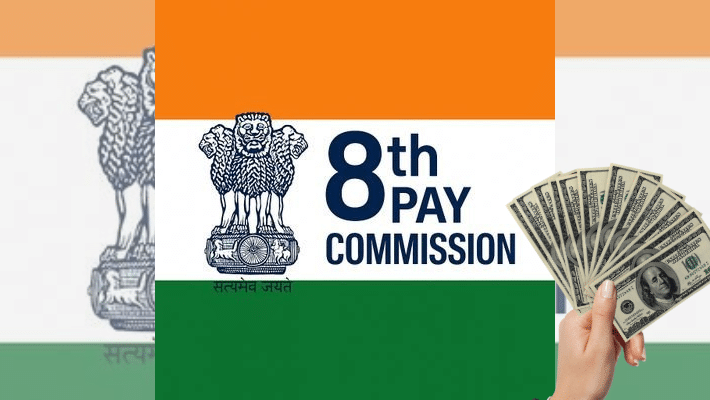Cabinet Approves Terms of Reference for the 8th Central Pay Commission
On 28 October 2025, the Union Cabinet, under the leadership of Narendra Modi, officially approved the Terms of Reference (ToR) for the 8th Central Pay Commission (8 CPC).
This marks a key step in the process of revising pay scales, allowances and pension provisions for central government employees and pensioners across India.
What is the Central Pay Commission?
The Central Pay Commission is a body set up periodically (roughly every 10 years) by the Government of India to examine and recommend changes in the emoluments structure, retirement benefits and other service-conditions of central government employees and pensioners.
The previous (7th) Pay Commission’s recommendations were implemented earlier in the decade; the 8th aims to align pay structures with current economic realities and evolving job profiles.
Key Features of the Decision
- The Cabinet approved the Terms of Reference (ToR) for the 8th CPC.
- The Commission will be a temporary body, with the following composition: one Chairperson, one Part‐time Member, and one Member-Secretary.
- The Commission has been mandated to submit its recommendations within 18 months of its constitution. It may also issue interim reports if necessary.
- The ToR specify that while making recommendations, the Commission will keep in view certain parameters:
- The economic conditions of the country and the need for fiscal prudence;
- The need to ensure that adequate resources remain available for development and welfare expenditure;
- The unfunded cost of non-contributory pension schemes;
- The likely impact of recommendations on the finances of State Governments (which often adopt central pay-panel decisions) ;
- The prevailing emolument structure, benefits and working conditions of employees of Central Public Sector Undertakings (CPSUs) and the private sector.
- According to the official note, the recommendations of the 8th CPC are normally expected to take effect from 1 January 2026.
Why This Matters
- As many as 50 lakh (5 million) central government employees and 65 lakh (6.5 million) pensioners are likely to be impacted by the recommendations (serving staff + retirees).
- The revision is important to ensure that pay scales keep pace with inflation, changing job roles, and to maintain morale among government employees.
- With state governments often following the central pay panels’ decisions (with modifications), the recommendations could have a wide ripple effect across India’s public service ecosystem.
- The fiscal implications are significant: while pay hikes benefit employees, the government must balance that with the need for fiscal discipline and development-welfare spending. The ToR explicitly mention this tension.
What to Watch
- Timeline: The Commission must deliver within 18 months; practical implementation may take further time, especially for retroactive arrears.
- Fitment factor & allowance structure: The actual quantum of increase in basic pay, dearness allowance (DA), grade pay components, HRA, transport allowances etc will be closely watched.
- Pension & retirement benefits: How the panel addresses pensioners’ interests (who often receive fixed incomes) will be critical.
- Impact on states: Many states adopt central pay panel recommendations; the financial burden on states may shape how quickly they implement them.
- Private & PSU comparisons: With the ToR explicitly referencing private sector and CPSUs, the panel may examine parity issues, which could lead to broader implications beyond just pay scales.
- Implementation date and arrears: If the effective date is 1 January 2026, arrears for past months may mount, which will matter to employees.
- Fiscal space: Given the government’s emphasis on fiscal prudence, the increase may be moderated compared to past pay commissions, or phased in over time.
Challenges & Considerations
- Delays: Though the formation was announced earlier, the formal approval of ToR came ten months later, which has raised employee-union concerns about delays.
- The gap between recommendations and implementation: Even after the report is submitted, the government and states must approve and implement; back-pay burdens may rise.
- Balancing competing priorities: The government must manage the twin goals of improving employee compensation and maintaining budgetary discipline.
- Changing job roles: With public service evolving (digitalisation, hybrid work, new cadres), the commission’s recommendations must reflect contemporary realities, not just legacy pay-structures.
Read… Cabinet approves Terms of Reference of 8th Central Pay Commission
What Next
- The Government will soon formally notify the constitution of the 8th CPC, including the names of the Chairperson and members, and the date of constitution (from which the 18-month clock will start).
- The Commission will engage in consultation with ministries, departments, employee associations, states and other stakeholders to collect inputs.
- At the end of its deliberations, the panel will submit recommendations to the Finance Ministry and the Cabinet, which will then decide on approval, implementation date, and modalities for arrears and phases.
- Once approved, ministries and departments will issue orders for pay revisions, and state governments will likely decide on their adoption and timelines.
- Employees and pensioners will closely monitor announcements on fitments, allowances, HRA grades, pension changes, and arrears.




